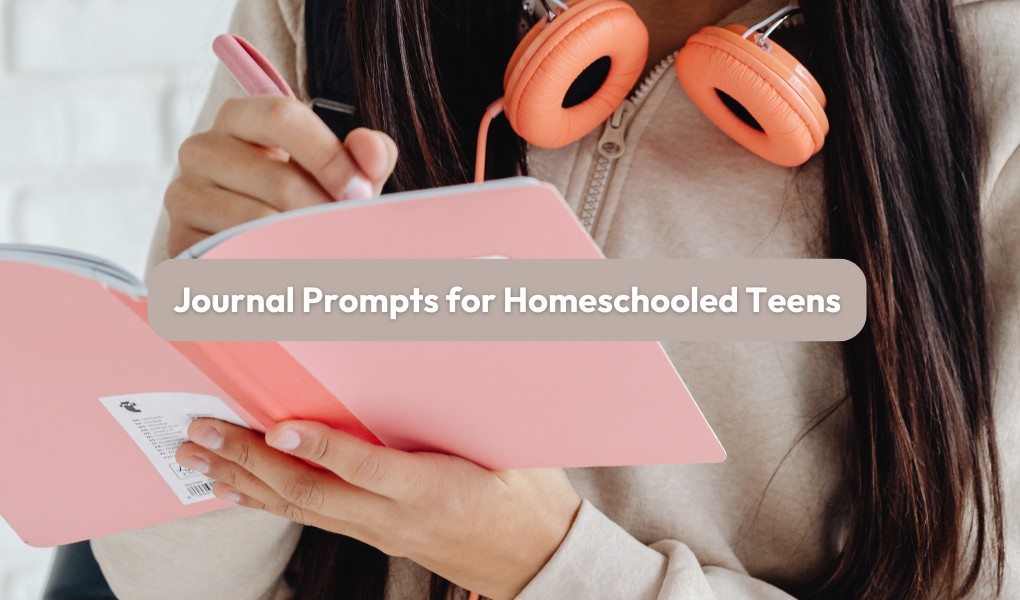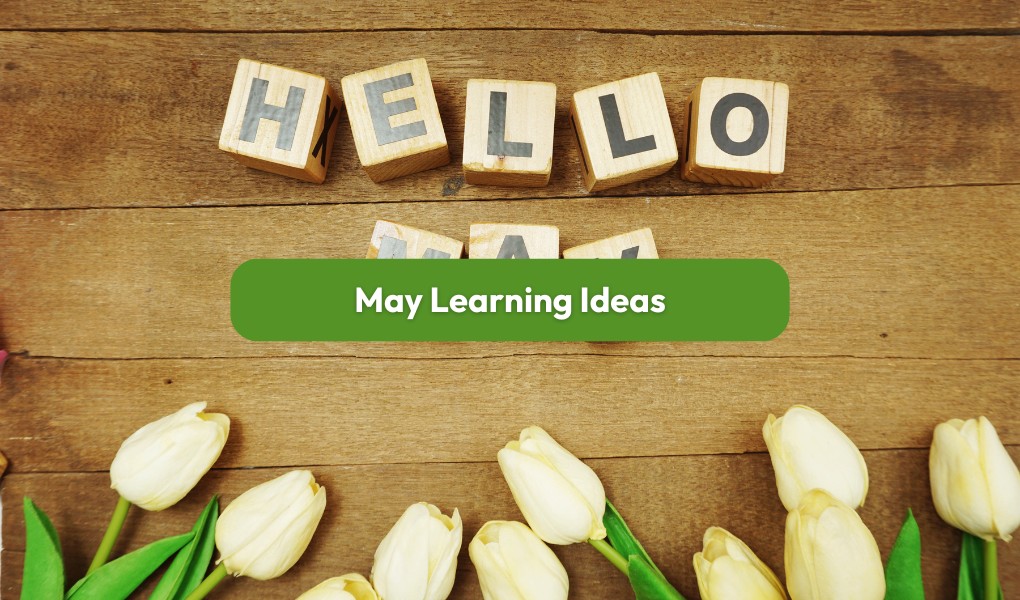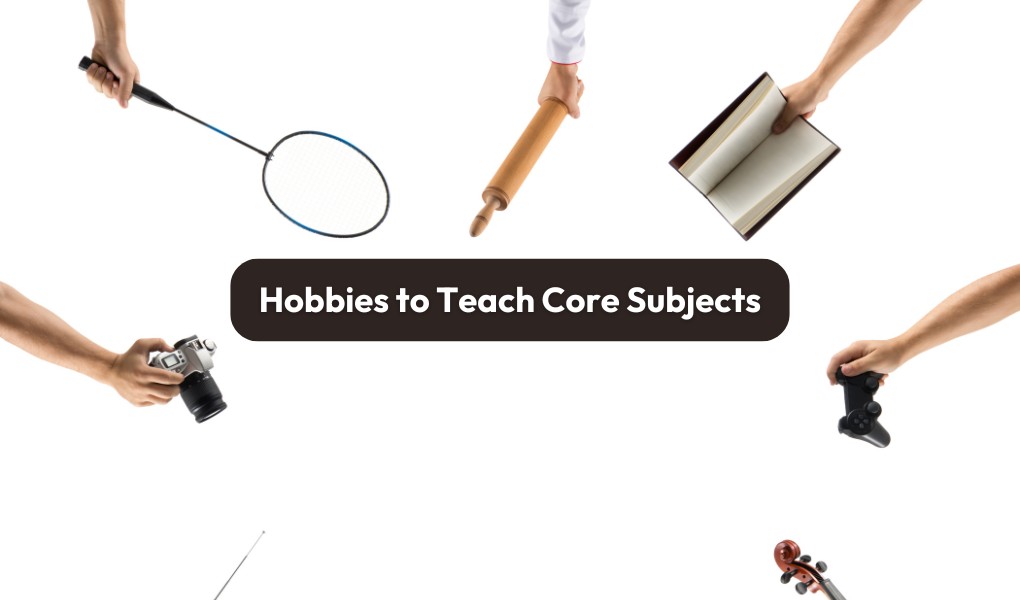With some planning and flexibility, home educating with a newborn or a toddler is perfectly possible, and we think these tips will definitely help you!

Table of Contents
We all know how rewarding home education is—for both adults and kids—but we also know that it has its challenges too. So, what happens when you throw a newborn or a toddler into the mix? A lot of adjustment and a shake up in routine, of course!
But having a newborn or toddler doesn’t mean that home educating your other children has to take a backseat or be something that feels unmanageable. Yes, it’s probably going to be a little daunting at first—and you’ll probably feel like you are constantly trying to juggle all your priorities—but let’s put any overthinking aside.
With some planning and flexibility, home educating with a newborn or a toddler is perfectly possible, and we think these tips will definitely help you!

Tips for Home Educating Before Your Newborn Arrives
Note down all the things that are likely to change
The first thing to help you prepare for home educating before your newborn arrives is to think about and note down all the things that are likely to change. This could be:
- Your current schedule
- The amount of time you have to home educate
- Family dynamics
- Emotional adjustments
- Changes in your older children
- The amount of tasks and responsibilities you have
- Changes in social activities
Prepare for these potential changes
Once you’ve noted down the potential changes of having to home educate with a newborn, you can start to prepare yourself for them. It’s very likely that your schedule is going to change, so you could start to be a bit more flexible with it or get rid of it altogether.
With family dynamics likely being impacted and potential changes in your older children, you could talk to them about how home education is going to be different and prepare them for the changes too.
Remember, with change comes the opportunity to adapt and find your feet again.
Organise priorities before the baby comes
Having a newborn means that you won’t have the time that you once did and this can impact a lot of things, as well as homeschooling, unschooling or whichever style of home education you decide. The best thing to do is to organise your priorities before the baby comes. This goes for personal, domestic, and homeschool priorities.
If you know that you want to cover certain homeschool topics with your children before your newborn arrives, prioritise them. You might also want to consider having some one-on-one time with your other children while you can make the most of it.
Adjust your routine as if your newborn was already there
A good idea for home educating before your newborn arrives is to adjust your routine as if they were already there. Of course, you can’t fully predict what life will be like or how much your schedule will change, but if you go off previous experience you can adapt to a more realistic schedule with a newborn than the one you currently have.
Tips for Home Educating with a Newborn

Embrace flexibility and things not going to plan
You’re going to realise that flexibility is your best friend when home educating with a newborn. This means that plans and schedules usually go out the window, but embrace it!
Lowering your expectations and knowing that things are not always going to go to plan isn’t a form of surrender. In fact, it will reduce your stress and make even the smallest achievements feel great!
Don’t worry about being organised either. You don’t need to have it all figured out—many of us don’t, even after years of home educating!
Home educate when you can! Whether it’s for a couple of minutes at a time or a solid hour that you’ve been blessed with!
Prioritise self-care
Self-care is one of the most important things to remember when trying to balance home educating and looking after a newborn. You’ve got to make sure that you don’t burn yourself out because your children need you, but they will benefit more from having you at your best.
By prioritising self-care when you need it, you’ll be in a better mindset to take care of your responsibilities and home educate your children. So, have that guilt-free break when you can, ask your partner or family for help, and remember that your children’s education won’t suffer for it.
Homeschool around baby’s naps or feeding schedule
When your baby naps or feeds it’s usually the ideal time to squeeze in a bit of homeschooling, even if it’s only for ten minutes. It also gives you a moment to relax and gather your thoughts.
If you start to know your baby’s sleep and feeding schedule, it can be useful to plan or prepare what you’re going to do with your older children. It’s an ideal time to get certain things done that wouldn’t be as easy if your newborn was awake, like focused work.
Communicate with your children
Having a newborn is not only a big change for you, it’s a big change for your children too. Before your newborn arrives you should make them aware of the changes that are going to happen, but even after your newborn arrives, communication is key.
Help your children to understand your different priorities and when it’s best for learning and family time. You never want them to feel left out, so prioritise time with them too.
Be open about your needs to your partner
You already have a lot on your plate and adding a newborn into the mix can be overwhelming and tiring. When you feel burnt out or just simply need a break from the responsibilities, be honest and open with your partner about what you need from them.
If you’re struggling with home education duties, let your partner take over. Or work out a schedule where you can both share newborn and learning responsibilities. Sometimes it just takes a little teamwork to pull through the day.
Encourage independent learning
To make home educating with a newborn a little easier, encourage your older children to learn independently. You could provide your older children with activities that they can complete independently, such as worksheets, online learning programmes, or reading assignments. Or let them choose something which inspires a big project they can work on.
Independent learning also inspires spontaneous learning, which you can learn more about here!
Involve your older children with baby duties
There’s always opportunities for your children to learn and involving them with baby duties not only teaches them responsibility, it also gives you the help you need. So the next time you ask your child to help you with the baby, don’t feel guilty! They are learning more than you realise!
Enlist the help of friends and family
The first few months of having a newborn is often the most challenging and when you’ve got the responsibility of home educating as well, there’s no doubt you’ll be grateful for any extra help.
Work out what you’re struggling with most and see if your friends and family can take over certain responsibilities for you or lend a helping hand.
Don’t worry about routine
We know that routines often go out the window in the first place, but then we feel pressured to get back into one. Instead of trying to force a routine, let it go altogether and see what happens!
Humans are creatures of habit and you may find that you naturally fall into a routine when you aren’t worrying about one. And even if your routine is still all over the place, embrace the freedom you have!
Tips for Home Educating with a Toddler

Be more flexible with your routine
As with home educating with a newborn, you also need flexibility with a toddler because no two days will be the same. There will be days when you’re able to accomplish more than you would have thought in your homeschooling schedule, and then there will be days when it seems like you’ve done very little.
Allowing yourself to be more flexible with your routine will alleviate stress because you won’t feel as pressured to stick to strict timings. When you accept that things will get done when they’re meant to and when you’re able to do them, you’ll find that they’re easier to accomplish.
Accommodate your toddler’s needs when home educating
Home educating with a toddler can be a little more challenging because they are becoming their own little person with their own thoughts, ideas, and needs. When you need to focus on your older children, it’s a good idea to give your toddler something to do too. By keeping them occupied with toys or crafts of their own, you’ll also be able to accommodate your other children’s needs and keep your toddler happy.
Engage your toddler in the learning process
Sometimes toddlers are happiest when they are involved with what we are doing. They don’t want to feel like they are missing out, and often they want to do the same as their brother or sister. So, if they take an interest in what your older children are learning or doing, engage them in the learning process! It’s much more fun for the whole family to be involved, and much more memorable too!
Be prepared for interruptions
Accept that there will be interruptions, and that’s okay. It gives you and your children the chance to adapt. There won’t always be peaceful moments of learning and that’s just something that you will get used to and learn to work with.
Share and split responsibilities with your partner
Toddlers can be a handful, there’s no doubt about that. At times it can be challenging to get some of your homeschooling and household responsibilities done, and this is when you’re likely to feel stressed and overwhelmed.
The best thing to do is share and split responsibilities with your partner, or even a friend or family member. You can’t do everything on your own, but sharing responsibilities with someone else really lifts the weight off your shoulders.
You’ll feel more at ease knowing what you’ve got to do and what your partner is going to do to help out. And hopefully you’ll have a happier, more manageable household!
Combine learning with your everyday responsibilities
Learning doesn’t need to look just like books and worksheets—it can happen at any time, anywhere! Think about how much we learn from our everyday tasks and how your children can learn from them too.
They’ll learn valuable life skills by helping you cook and clean, and how to socialise when you’re out and about. In fact, anything can be a valuable learning experience!
Extra Tips for Home Educating with a Newborn or Toddler
- Baby-wearing: Many parents find that baby-wearing works wonders. Wearing your baby in a carrier allows you to stay mobile and hands-free while teaching.
- Rotate toys and activities: To keep toddlers engaged, have a selection of toys or activities that you rotate throughout the day. This keeps things fresh and exciting, reducing the chances of boredom and tantrums.
- Encourage sibling interaction: Allow your older children to bond with the baby or toddler. Whether it’s reading a book to their sibling, playing with them, or helping with their care.
- Daily checklists: Create daily or weekly checklists for your children to work through. This will give them a clear sense of what needs to be done and help you stay on track even when interruptions arise.
- Timers and breaks: Use timers during learning time, followed by breaks. While your older children work, you can focus on the baby, and during breaks, everyone can spend time together.
- Celebrate small wins: Completing even a single subject or task amidst baby-related chaos is an achievement! Focus on what went well rather than what was missed.
We hope these tips will help you to home educate with your newborn or toddler! As always, feel free to reach out if you have any questions or just fancy a chat!

m@liberated
Want more from Liberated to Learn?
Subscribe to stay updated about new posts, resources and giveaways!












